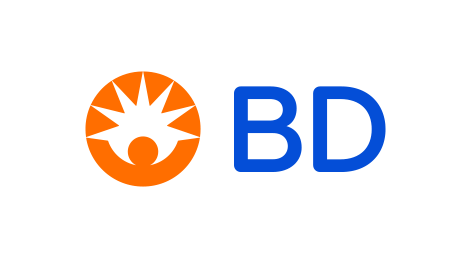CCR5 / Brilliant Ultraviolet 496 / 2D7/CCR5
Product Details
| Description | BUV496 Mouse Anti-Human CD195 | |
|---|---|---|
| Conjugate | Brilliant Ultraviolet 496 | |
| Clone | 2D7/CCR5 | |
| Target Species | Human | |
| Applications | FC | |
| Supplier | BD Biosciences | |
| Catalog # | Sign in to view product details, citations, and spectra | |
| Size | ||
| Price | ||
| Antigen | ||
| Host | ||
| Isotype |
About CCR5
This gene encodes a member of the beta chemokine receptor family, which is predicted to be a seven transmembrane protein similar to G protein-coupled receptors. This protein is expressed by T cells and macrophages, and is known to be an important co-receptor for macrophage-tropic virus, including HIV, to enter host cells. Defective alleles of this gene have been associated with the HIV infection resistance. The ligands of this receptor include monocyte chemoattractant protein 2 (MCP-2), macrophage inflammatory protein 1 alpha (MIP-1 alpha), macrophage inflammatory protein 1 beta (MIP-1 beta) and regulated on activation normal T expressed and secreted protein (RANTES). Expression of this gene was also detected in a promyeloblastic cell line, suggesting that this protein may play a role in granulocyte lineage proliferation and differentiation. This gene is located at the chemokine receptor gene cluster region. An allelic polymorphism in this gene results in both functional and non-functional alleles; the reference genome represents the functional allele. Two transcript variants encoding the same protein have been found for this gene. [provided by RefSeq, Jul 2015]
This gene encodes a member of the beta chemokine receptor family, which is predicted to be a seven transmembrane protein similar to G protein-coupled receptors. This protein is expressed by T cells and macrophages, and is known to be an important co-receptor for macrophage-tropic virus, including HIV, to enter host cells. Defective alleles of this gene have been associated with the HIV infection resistance. The ligands of this receptor include monocyte chemoattractant protein 2 (MCP-2), macrophage inflammatory protein 1 alpha (MIP-1 alpha), macrophage inflammatory protein 1 beta (MIP-1 beta) and regulated on activation normal T expressed and secreted protein (RANTES). Expression of this gene was also detected in a promyeloblastic cell line, suggesting that this protein may play a role in granulocyte lineage proliferation and differentiation. This gene is located at the chemokine receptor gene cluster region. An allelic polymorphism in this gene results in both functional and non-functional alleles; the reference genome represents the functional allele. Two transcript variants encoding the same protein have been found for this gene. [provided by RefSeq, Jul 2015]
About Brilliant Ultraviolet 496
Brilliant™ UltraViolet 496 (BUV496) is a blue-emitting tandem fluorophore that combines BD Horizon® BUV395 and an acceptor dye. It can be excited by the 355 nm ultraViolet laser and collected using a 515/30 bandpass filter. BUV496 has an excitation peak at 348 nm and an emission peak at 496 nm BUV496 has a low/medium relative brightness, and is most commonly used for multicolor flow cytometry. This dye is part of the Brilliant™ UltraViolet dye family, developed and sold by BD Biosciences. This family of dyes uses BUV395 as the donor so that all dyes in the family can be excited by the 355 nm ultraViolet laser. Depending on the acceptor, the dyes in this family have different relative brightness ratings.
Brilliant™ UltraViolet 496 (BUV496) is a blue-emitting tandem fluorophore that combines BD Horizon® BUV395 and an acceptor dye. It can be excited by the 355 nm ultraViolet laser and collected using a 515/30 bandpass filter. BUV496 has an excitation peak at 348 nm and an emission peak at 496 nm BUV496 has a low/medium relative brightness, and is most commonly used for multicolor flow cytometry. This dye is part of the Brilliant™ UltraViolet dye family, developed and sold by BD Biosciences. This family of dyes uses BUV395 as the donor so that all dyes in the family can be excited by the 355 nm ultraViolet laser. Depending on the acceptor, the dyes in this family have different relative brightness ratings.
Experiment Design Tools
Panel Builders
Looking to design a Microscopy or Flow Cytometry experiment?
Validation References
Reviews & Ratings
| Reviews |
|---|
Looking for more options?
989 CCR5 antibodies from over 34 suppliers available with over 77 conjugates.





